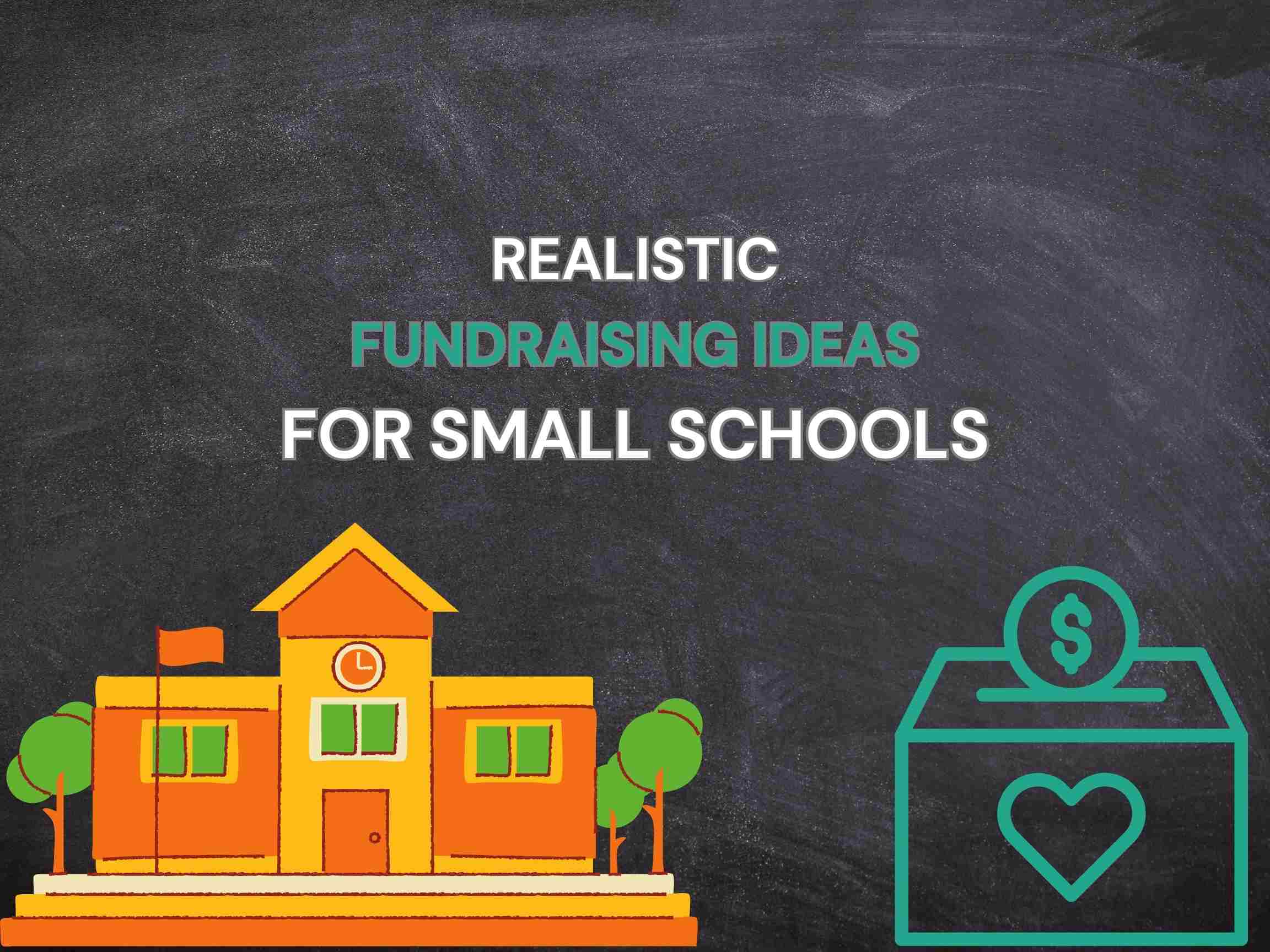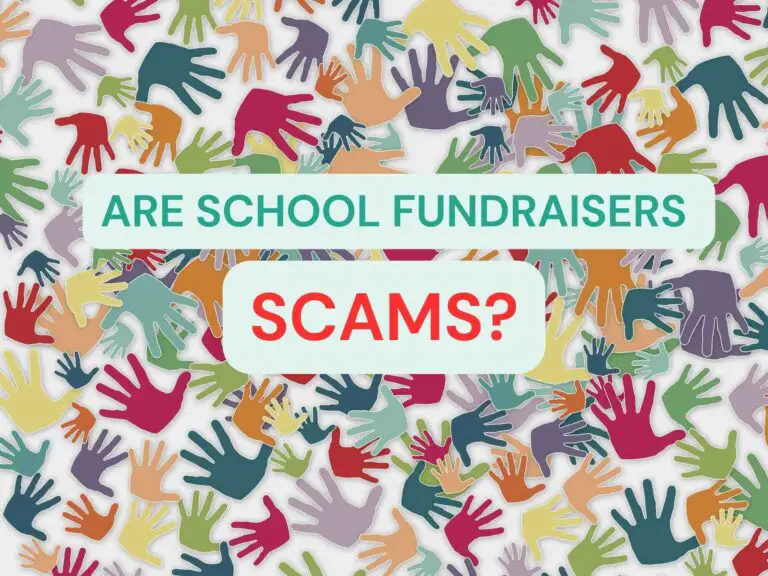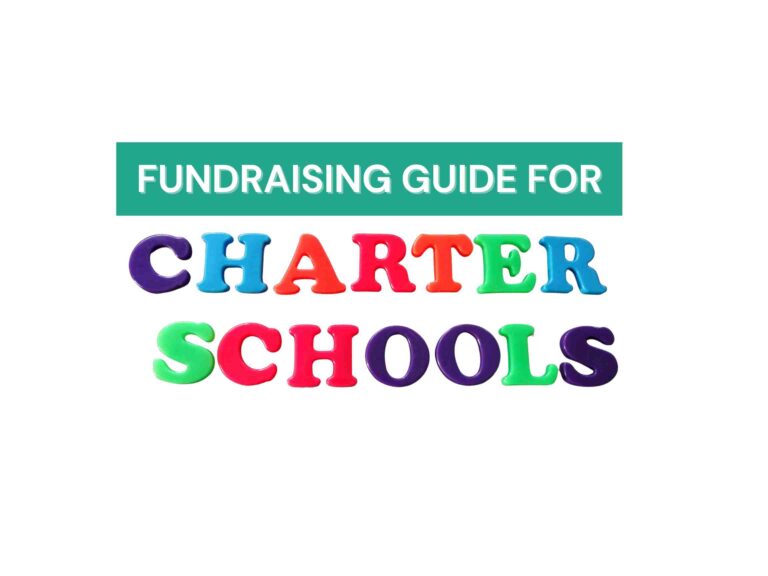7 Fundraising Ideas for Small Schools to Overcome Challenges
This post may contain affiliate links. If you purchase through one of these links, I may receive a small commission at no extra cost to you. As an Amazon Associate, I earn from qualifying purchases.

Looking for realistic, practical fundraising ideas for small schools? We know that huge talent shows, musical concert fundraisers, or school fundraising fetes involving a host of activities may not be suitable for small schools. This article delves into simple ways in which you can raise funds for your small school. The fundraising ideas suggested in this article do not require many students to volunteer or top-notch infrastructural support.
These simple fundraising ideas should work in all schools regardless of the racial, ethnic, and economic mix of the students enrolled. The fundraiser ideas would also work with a wide range of age groups. So read on to find out all about the best fundraising ideas for small schools that will help you overcome fundraising challenges.
What schools could be considered small schools?
According to the National Center for Education Statistics, as of the 2020-2021 school year, the average school size in the USA was around 555 students for Fall 2021. But not all schools are of average size. A significant proportion of schools are much smaller, with fewer than 200 students, and classes often have fewer than 15 students.
Why is Fundraising Challenging for Small Schools?

In case you are wondering why traditional fundraising ideas don’t work with small schools, it is important to understand the shortcomings of a small school. Typically, challenges faced by small schools in fundraising could be summarized as under:
- Small schools typically have a more limited donor pool due to their smaller student body and corresponding community. This means fewer parents, friends, and families to call upon for support, which can make reaching substantial fundraising goals more difficult.
- Small schools frequently grapple with a limited volunteer force. Without a large parent-teacher association or a vast network of alumni, organizing grand-scale fundraising events becomes less feasible.
- Smaller schools typically have less funding available for investing in initial fundraising efforts, which can limit their ability to host big-ticket events or launch extensive campaigns.
- Another challenge small schools face is maintaining enthusiasm and engagement throughout a fundraiser. With fewer people to share in the excitement, keeping the momentum going can be tricky.
- Small schools often have less diversity in skills and resources among their parent community, which can pose challenges when trying to cater to a wide range of interests and abilities in fundraising activities.
- Small schools may struggle with visibility. Located in quieter areas or small towns, they might lack the attention or reach that larger schools in busier areas enjoy. This can pose difficulties when seeking sponsorship or trying to attract attention to fundraising efforts.
But what works in favor of small schools is that despite these challenges, small schools can rely on a strong sense of community, personalized connections, and higher participation rates. So as we had discussed in our article on fundraising ideas for small towns, understanding the various types of fundraising and choosing one that perfectly fits your specific circumstances is key.
7 Realistic Fundraising Ideas for Small Schools
1. Pen Pal Letters
In the digital age, the charm of handwritten letters remains unparalleled. In a small school setting, pen pal letters can be an excellent fundraising avenue. Have students craft unique, beautifully decorated letters or postcards, allowing them to showcase their creativity while also building writing skills. These letters can then be sold to family, friends, and relatives. For execution, consider arranging a ‘letter writing day’, making it a school event with snacks and music. The intimate nature of this project is well-suited to small schools, as it offers a highly personal product that can appeal to a tight-knit community.
2. Recipe Card Sale
Food connects us all, making the recipe card sale a delightful idea for small schools. Invite each student to share their favorite family recipe, compile these into an attractive digital recipe card set, and sell it online. The process of gathering recipes can be educational and foster a sense of community, as students learn about various cuisines and cultures. To execute this, you could create a simple template for students to fill in their recipe and an accompanying photo of the dish. This low-cost project can be managed efficiently even with limited student strength.
3. Online Skill Workshop
Small schools often possess a wealth of untapped skills within their community. Leverage this strength by hosting an online skill workshop. A teacher proficient in yoga, a parent who’s a crafting whiz, or a student who’s a chess champ can conduct sessions. Charge a modest fee for participation. The key here is promoting a sense of sharing and learning within the community. To ensure success, carefully plan the logistics, like the online platform, the date and time, and how participants can sign up and pay.
4. Micro-Fundraiser Challenge
Empower students to become fundraisers themselves with the micro-fundraiser challenge. Assign a small amount of money to each student, with the challenge of doubling it through their creative ideas. It could be baking cookies, making crafts, or offering a car wash service to neighbors. This idea not only raises funds but also promotes entrepreneurial skills and creative thinking among students. Provide a set time frame for the challenge and celebrate the most successful ideas to motivate participation.
5. Parents Night-Out
Parents need a break too, and a Parents Night Out is a perfect opportunity for them to relax while contributing to the school’s fundraising efforts. With a small group of students, you can offer a fun and safe environment for kids to enjoy activities, games, or movies. Charge a fee for this service that directly contributes to your school funds. Remember to ensure there are enough volunteers for supervision and consider offering this service periodically for a steady fundraising stream.
6. Virtual Fun Run
The beauty of a virtual fun run is its inclusivity – everyone can participate at their own pace and on their own schedule. Students and families can run or walk a set distance, anytime, anywhere. Entrants can secure sponsorship from friends and family, thus extending the reach of the fundraiser beyond the immediate school community. This not only encourages fitness but also caters perfectly to small schools where organizing large-scale events may be challenging.
7. Sponsored Read-A-Thon
Promote a love for reading while raising funds through a sponsored read-a-thon. A read-a-thon is also one of the most budget-friendly ways to raise funds for school. Students seek pledges for each book they read over a certain period. The quiet, individual nature of reading makes this fundraiser particularly suited for small schools. You could set different reading levels according to age and offer prizes for the most books read or the most funds raised to boost motivation. Consider sharing a recommended reading list to guide students, thus adding an educational benefit to this fundraising idea.
Tips to Make Small School Fundraisers Successful
Small schools must be very intentional with how they wish to use the power of fundraising to improve the quality of education of their students. Some key tips for success are:
Minimal Frequency
Having no more than 2 fundraisers a year is a good rule of thumb. This helps avoid the perception that school fundraisers are scams and that schools are constantly asking for money and helps to stave off donor fatigue.
Right Timing
Timing is crucial. Plan your fundraisers strategically during the year when parents and community members are most likely to participate. Avoid holiday seasons or exam periods when families might be too busy.
Clear Vision
Start every fundraiser with a clear vision. Clearly communicate what the funds will be used for and how it will benefit the students and school. This not only creates excitement but also ensures transparency.
Community Engagement
Involve the students, staff, and parents in the planning and execution process as much as possible. This creates a sense of ownership and community, boosting participation.
Variety of Fundraisers
Implement a variety of fundraisers that cater to different interests and budgets. This will make sure everyone in the community has an opportunity to participate in a way that suits them.
Acknowledgment
Don’t forget to acknowledge and thank all participants and contributors after the event. A simple thank-you note or a small token of appreciation goes a long way in maintaining good relationships and ensuring future support.
Tracking and Reporting
Keep a record of all donations and expenses. After the fundraiser, share a brief report on the money raised and its impact. This builds trust and keeps the community invested in the school’s success.
Final Thoughts
The reason why we have recommended only 7 types of fundraising ideas in this article is that these are representative of the type of fundraisers small schools could have. Using these as guiding ideas, small schools could transform any traditional fundraising idea to match their specific circumstances and unique contexts. For example, instead of a large fair, a small school might host a community talent show or a virtual fun run. Instead of a high-profile guest speaker, they might leverage the skills and talents within their own community for an online skill workshop. It’s all about tailoring the event to the scale and capabilities of the school.
With thoughtful planning and innovative ideas, small schools can effectively meet their fundraising goals while simultaneously enhancing their community spirit and student enrichment.






